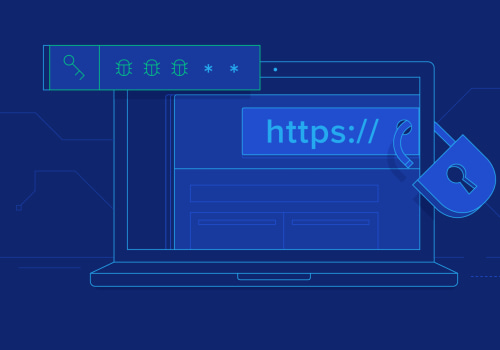In our increasingly digital world, data integrity and transmission security are essential components of any organization's security infrastructure. From large corporations to small businesses and even individual users, safeguarding data is paramount in today's environment. In order to ensure the safe transmission and storage of confidential data, organizations must adhere to HIPAA security requirements and other technical security requirements. This article will explore the importance of data integrity and transmission security, as well as the steps organizations should take to ensure that their data is secure.
Data integrity and transmission security
are two essential components of data security.Data integrity ensures that the data remains unchanged and uncorrupted as it moves from one location to another, while transmission security ensures that the data is protected from unauthorized access during its transmission. In order to protect your data, it is important to understand both of these concepts and take measures to ensure their implementation. Data integrity is a measure of accuracy and completeness that ensures that the data has not been modified or corrupted in any way during its transmission. This can be achieved by using various methods such as hashing, encryption, digital signatures, and authentication protocols.
Hashing is a technique used to create a unique identifier for a set of data, which can be used to verify the accuracy of the data when it is received. Encryption is a process whereby data is encoded so that it cannot be read without a key. Digital signatures are used to authenticate the sender of the data, ensuring that only the intended recipient can access it. Finally, authentication protocols such as two-factor authentication, can be used to confirm the identity of the sender and receiver before the transmission takes place.
Transmission security is a measure of protection that ensures that the data is secure from unauthorized access during its transmission. This can be achieved by using various security measures such as firewalls, antivirus software, intrusion detection systems, VPNs, and encryption. Firewalls are hardware or software solutions designed to control incoming and outgoing network traffic, while antivirus software helps protect computers from malicious software attacks. Intrusion detection systems detect and respond to malicious activity on networks, while VPNs provide an encrypted tunnel between two points on a network.
Finally, encryption is the process of encoding data so that it cannot be accessed without a key. It is important to follow HIPAA security requirements and other technical security requirements in order to ensure that your data remains secure. These regulations lay out specific guidelines for protecting sensitive information, including requirements for data integrity and transmission security. Following these regulations will help you protect your data from unauthorized access and ensure that your data remains secure.
Data Integrity
Data integrity is the assurance that the data stored, processed, and transmitted is complete, accurate, and secure. It ensures that data is not altered in an unauthorized or accidental manner, either during transmission or storage. Data integrity is an essential part of any security system and is vital for protecting sensitive data from unauthorized access. In order to ensure data integrity, there are a variety of measures that can be taken.Encryption is one of the most common ways to protect data integrity, as it scrambles data so that it can only be read by authorized individuals. Authentication is another important measure, which verifies that only those with the correct credentials can access the data. Digital signatures are another type of authentication that helps to verify the origin of the data and its accuracy. Ultimately, data integrity is essential to any security system because it ensures that the data being stored, processed, and transmitted is accurate and secure.
It is important to take steps to protect your data, such as using encryption, authentication, and digital signatures, in order to ensure its security and integrity.
HIPAA Security Requirements and Technical Security Requirements
Data integrity and transmission security are essential for protecting sensitive data from unauthorized access. HIPAA security requirements and other technical security requirements are essential for ensuring that data remains secure. HIPAA (Health Insurance Portability and Accountability Act) is a set of security standards that must be followed to ensure the privacy and security of protected health information (PHI). These standards include regulations on how data should be encrypted, transmitted, and stored, as well as how access to PHI should be controlled. To comply with HIPAA, organizations must implement physical, technical, and administrative safeguards to protect PHI. In addition to following HIPAA security requirements, organizations should also adhere to other technical security requirements.These requirements may include measures such as network segmentation, intrusion detection systems, firewalls, and antivirus software. Organizations should also ensure that all data is encrypted both in transit and at rest. This will help protect data from unauthorized access or modification. Organizations should also review their security policies regularly to ensure that they are up to date and in line with the latest security standards. This can help prevent data breaches and protect sensitive information.
Transmission Security
Transmission security is an important part of data security that involves protecting data from unauthorized access during transmission.It is important to take measures to ensure that data remains secure when it is sent over the internet, wireless networks, or other networks. Transmission security measures include using firewalls, antivirus software, encryption, secure protocols, and more. Firewalls are an important part of transmission security. They act as a barrier between your computer and the internet, blocking unauthorized access and protecting your data from malicious actors.
Antivirus software can also help protect your data by scanning for malicious software and preventing it from getting into your system. Encryption is another important component of transmission security. It scrambles data so that it cannot be read by anyone other than the intended recipient. This helps to ensure that only authorized parties can access the data.
Secure protocols, such as Secure Sockets Layer (SSL) and Transport Layer Security (TLS), are also used to protect data during transmission. Overall, transmission security is essential for protecting your data from unauthorized access. It is important to take measures to ensure that your data remains secure during transmission, such as using firewalls, antivirus software, encryption, and secure protocols. Data integrity and transmission security are essential for protecting sensitive data from unauthorized access. It is important to understand the measures necessary to ensure data security, including following HIPAA security requirements and other technical security requirements.
By taking the proper steps to protect data integrity and secure transmissions, organizations can ensure their data remains secure.








Leave Message